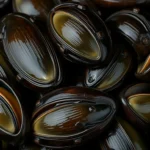
Understanding dog nutrition is essential for keeping our furry friends healthy and happy. Just like humans, dogs have different dietary needs at various life stages, which can significantly impact their overall well-being. One commonly asked question among dog owners is, can adult dogs eat puppy food? This article delves into the nutritional differences between puppy and adult dog food, the implications of feeding puppy food to adult dogs, and when it might be appropriate to do so.
Understanding Dog Nutrition
Importance of Proper Nutrition
Proper nutrition plays a pivotal role in a dog’s health and well-being. A balanced diet provides the necessary energy for daily activities, supports immune function, and helps maintain a healthy coat and skin. Nutrition also affects growth, development, and overall longevity. For growing puppies, the right nutrients are crucial for building strong bones and muscles, while adult dogs require a balanced diet to maintain their weight and energy levels.
Nutritional Requirements for Dogs
Dogs need a variety of nutrients to thrive, which can be broken down into macronutrients and micronutrients:
-
Macronutrients: These include proteins, fats, and carbohydrates. Puppies typically require a higher protein and fat content to support their rapid growth, while adult dogs need a balanced ratio of these macronutrients for maintenance.
-
Micronutrients: Vitamins and minerals are vital for various bodily functions. Puppies need specific vitamins and minerals to promote growth, while adult dogs require these nutrients in different proportions to maintain health.
Understanding these differences is crucial when considering whether adult dogs can eat puppy food.
Puppy Food vs. Adult Dog Food
Nutritional Composition of Puppy Food
Puppy food is specifically formulated to meet the needs of growing dogs. It generally contains:
- Higher protein and fat content: This supports muscle development and energy needs during growth.
- Key vitamins and minerals: Ingredients like calcium and phosphorus are crucial for bone development.
- Caloric density: Puppy food tends to be more calorie-dense, providing the necessary energy for active puppies.
Nutritional Composition of Adult Dog Food
In contrast, adult dog food is designed for maintenance rather than growth. Its composition includes:
- Balanced nutrient ratios: Adult dog food contains lower levels of protein and fat, which helps prevent obesity.
- Fiber: This aids in digestion and helps maintain a healthy weight.
- Specific nutrients: Adult dogs require nutrients that support joint health and overall well-being, such as glucosamine and omega fatty acids.
Understanding these differences is essential when evaluating whether adult dogs can eat puppy food.
Can Adult Dogs Eat Puppy Food?
Short-Term Feeding of Puppy Food to Adult Dogs
Feeding puppy food to adult dogs can have both benefits and risks.
Potential Benefits:
– Enhanced energy levels: For active or working adult dogs, the higher fat and protein content in puppy food may provide a temporary energy boost.
– Weight gain for underweight dogs: If an adult dog is underweight, puppy food can help them gain weight more quickly.
Risks:
– Obesity: Long-term feeding of puppy food may lead to excessive weight gain in adult dogs, as they do not require the same calorie intake as puppies.
– Nutritional imbalances: Over time, the higher levels of certain nutrients in puppy food can lead to imbalances and health issues.
Long-Term Effects of Feeding Puppy Food to Adult Dogs
Feeding puppy food to adult dogs over an extended period can lead to several health risks, including:
-
Obesity: Excessive calorie intake can lead to obesity, which is linked to various health issues such as diabetes, heart disease, and joint problems.
-
Joint problems: Adult dogs may develop joint issues from the rapid growth encouraged by puppy food, especially in larger breeds.
Case Studies: Many veterinarians report cases of adult dogs fed puppy food for prolonged periods developing obesity and related health issues. For example, a Labrador Retriever that was consistently fed puppy food became overweight, leading to arthritis and mobility issues.
Expert Opinions and Recommendations
Veterinarians and pet nutritionists generally recommend against regularly feeding adult dogs puppy food. They emphasize the importance of sticking to a diet formulated for the dog’s age, size, and activity level. Most professionals suggest that if an adult dog has specific needs—like recovering from illness or struggling to gain weight—puppy food can be temporarily introduced but should not be a long-term solution.
When Should Adult Dogs Eat Puppy Food?
Special Circumstances
There are specific instances when adult dogs can eat puppy food without significant risks:
-
Recovery from illness: If an adult dog is recovering from surgery or illness, the extra calories and nutrients in puppy food can be beneficial during the healing process.
-
Weight gain: For underweight adult dogs or those with high energy demands, puppy food can help them gain weight quickly. However, it should only be a temporary measure.
Transitioning Back to Adult Food
If an adult dog has been fed puppy food, transitioning back to adult food is essential. This should be done gradually to prevent gastrointestinal upset.
Steps for Transition:
1. Mix the Foods: Start by mixing a small amount of adult food with the puppy food.
2. Gradually Increase Adult Food: Over several days, slowly increase the proportion of adult food while decreasing the puppy food.
3. Monitor for Signs: Keep an eye on your dog for any signs of digestive upset during the transition, such as diarrhea or vomiting.
Conclusion
In conclusion, while adult dogs can eat puppy food in certain situations, it is not advisable for long-term feeding. Understanding the nutritional differences between puppy and adult dog food is crucial for maintaining your dog’s health. Proper nutrition supports their energy levels, growth, and overall well-being, and feeding the right type of food is a key component of responsible pet ownership. Always consult with a veterinarian for personalized dietary recommendations tailored to your dog’s specific needs.
By prioritizing appropriate nutrition for your dog, you can ensure they lead a happy, healthy life, regardless of their age.









